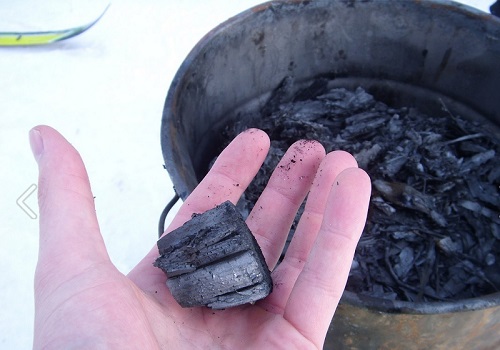Technical Note SB82: Biocarbon for industrial applications
What is the difference between biocarbon and biochar?
 Biocarbon and biochar are both solid, carbon-rich material obtained from the pyrolysis of biomass. Both are similar to charcoal but vary in their ultimate fate (energy or carbon storage). The familiar barbeque “charcoal” is a form of biocarbon.
Biocarbon and biochar are both solid, carbon-rich material obtained from the pyrolysis of biomass. Both are similar to charcoal but vary in their ultimate fate (energy or carbon storage). The familiar barbeque “charcoal” is a form of biocarbon.
- Biochar and biocarbon production via pyrolysis hold considerable promise for co-production of industrial heating, electricity generation, and as solid, liquid and gaseous feedstocks for many industries:
- biocarbon as a reductant where fossil fuel carbon such as coal is currently used
- biocarbon as a coal replacement for industries requiring high carbon and energy content feedstocks
- biochar as a soil amendment (see TNSB05 -Biochar)
- biochar for carbon sequestration applications (see TNSB05 -Biochar)
- as activated carbon (after steam treatment)
- Among the industrial applications, the metallurgical sector is the most promising market for biocarbon.
